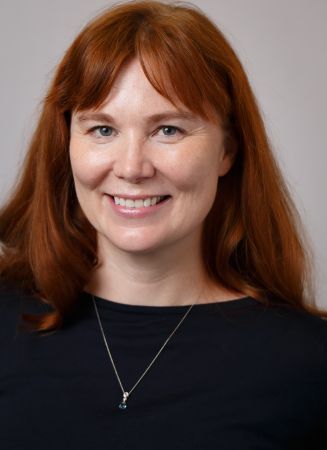“Although my undergraduate degree will be in chemical engineering, I have always wanted to use my major in the environmental sector,” says Kelby Anderson ’22, president of Lehigh’s chapter of Engineers Without Borders.
Her involvement with the student group—including working on a water supply project in the Dominican Republic and leading the development of a water irrigation system for Lehigh’s Community Gardens—has only solidified her choice of a career direction.
Anderson has excelled academically at Lehigh, earning the Robert C. Hicks Prize in chemical engineering as one of the top students in her major. But to set herself up for success, the senior has decided that her next step is back into the classroom.
“Many environmental engineering jobs require or emphasize the importance of having a master’s degree,” says Anderson. “With the BS-to-master’s program, I will get that degree and learn more specifics in that area I’m really interested in, while building on the broader skill sets I developed in my undergraduate experience.”
She’s referring to the Rossin College’s Bachelor’s to Master’s Accelerated Program, traditionally referred to as a “4+1 program,” that allow eligible undergraduates to apply up to 12 credits taken during undergraduate studies toward a master’s degree.
As the challenges engineers are called on to address become more interdisciplinary, it’s pragmatic for students to think about diversifying themselves as well, says Sabrina Jedlicka, the Rossin College’s associate dean for academic affairs and an associate professor of bioengineering and materials science and engineering.
“It’s not uncommon that as students progress in their engineering education, they become aware of interests and problems that exist in neighboring fields or at the intersection of disciplines that excite them,” Jedlicka says. “For those students, the ability to complete their original undergraduate degree while setting a new trajectory to a master’s degree can bring enormous value.”
That value can be measured in both educational and financial terms, she says.
Acceptance into the Accelerated BS-Master’s Program allows students to enroll in graduate-level classes during their junior and senior years, so the coursework is included in undergraduate tuition. This can translate into a savings of up to 40 percent based on the cost of a traditional master’s degree. The setup often enables students to complete the credits for a master’s degree in one additional year of study at Lehigh beyond their four-year degree.
Anderson considered a number of additional factors in her decision to pursue the accelerated track.
“Going right into my master’s degree means I won’t need to spend time refreshing on how to study or take exams—the knowledge I’ve already acquired will be fresh in my mind,” she says. Nor will she have “the pressure of balancing a 9-to-5 job” while getting the degree she knows she’ll eventually need.
Anderson also wants to continue to tap into the experiential learning opportunities that have contributed so much to her growth.
“I’m hoping to get involved with research or work on projects that I have not yet had the time to delve into,” she says. “One of my professors is researching phosphate removal from wastewater, and I would love to experience how decontamination strategies are being studied and implemented.”
She’s also made connections through a summer internship with a company creating biomimetic underwater adhesives, and she intends to continue that relationship during her graduate studies.
Although the Accelerated BS-Master’s Program isn’t new, says Jedlicka, for current and upcoming undergraduate students who have experienced disruptions caused by the covid pandemic, the opportunity to enrich their college experience while gaining an edge in the job market may have particular appeal.
Anderson agrees: “Because of covid, I had to stay home for six months. It was a setback, and I think having an extra year to fully research and apply for jobs and further develop my independence and confidence will be worth it."
—Katie Kackenmeister, assistant director of communications, Rossin College



